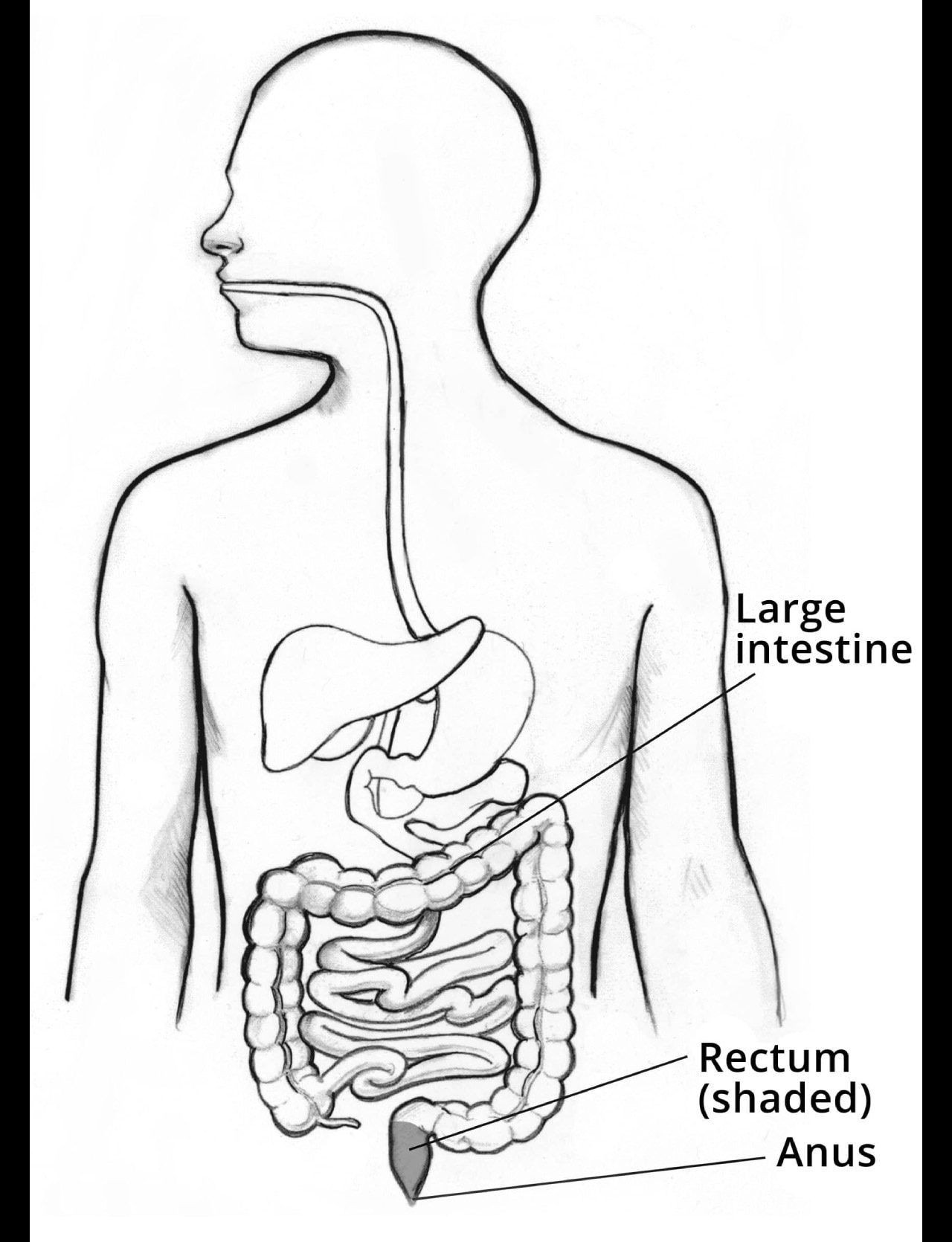Definition & Facts for Proctitis
In this section:
- What is proctitis?
- Are there different types of proctitis?
- How common is proctitis?
- Who is more likely to develop proctitis?
- What are the complications of proctitis?
What is proctitis?
Proctitis is inflammation of the lining of your rectum. The rectum is the lower end of the large intestine.
 The digestive system, showing the location of the large intestine, rectum, and anus.
The digestive system, showing the location of the large intestine, rectum, and anus.
Are there different types of proctitis?
Experts have identified several types of proctitis, which have different causes and treatments.
Proctitis may be chronic or acute. Chronic proctitis can last a long time or may come and go over time. Acute proctitis develops suddenly and lasts a short time.
Common types of proctitis include the following.
Proctitis in IBD
Proctitis may be part of inflammatory bowel disease (IBD). Ulcerative colitis and Crohn’s disease are common types of IBD that may cause proctitis. Proctitis in IBD is chronic, and it is the most common type of proctitis.1
Infectious proctitis
Certain infections, including some types of sexually transmitted diseases (STDs) and food poisoning, may cause proctitis. Infectious proctitis is most often acute.
Radiation proctitis or radiation proctopathy
Radiation proctitis is a commonly used term for a condition that is also called radiation proctopathy. This condition may occur after a person receives radiation therapy to treat cancer or other diseases in the pelvic area or lower abdomen. Radiation proctopathy may be acute or chronic.
Acute radiation proctopathy most often occurs within 3 months of starting radiation therapy.2 Acute radiation proctopathy typically lasts a short time, but it may become chronic.
Chronic radiation proctopathy most often begins 9 to 14 months after radiation therapy.3 However, the condition may develop many years after radiation therapy has ended.
Diversion proctitis
Diversion proctitis is inflammation of the rectum that may develop after ostomy surgery of the bowel, also called bowel diversion. After ostomy surgery, waste leaves your body through an opening called a stoma in your abdominal wall instead of passing through the rectum and anus.
Diversion proctitis is chronic and most often starts 3 months to 3 years after ostomy surgery.2
How common is proctitis?
Experts don’t know how common all types of proctitis are. However, researchers have studied how common specific types of proctitis are in certain groups of people. For example
- About 30% of people diagnosed with ulcerative colitis have inflammation in the rectum only.2 Doctors call this condition ulcerative proctitis.
- Among people who have radiation therapy to treat cancer in the pelvic area or lower abdomen, about 75% develop acute radiation proctopathy and up to 20% develop chronic radiation proctopathy.4
- Among people who don’t have the rectum removed during ostomy surgery, inflammation in the rectum—called diversion proctitis—is common. However, less than half of these people develop symptoms.2
Who is more likely to develop proctitis?
You are more likely to develop proctitis if you
- have ulcerative colitis or Crohn’s disease
- have a sexually transmitted disease or engage in anal sex
- had radiation therapy to your pelvic area or lower abdomen to treat certain types of cancer
- had ostomy surgery of the bowel and did not have your rectum removed
What are the complications of proctitis?
If your proctitis isn’t treated or doesn’t get better with treatment, you may develop complications, including
- abscesses—painful, swollen, pus-filled areas caused by infection
- chronic or severe bleeding that can lead to anemia
- fistulas—an abnormal passage, or tunnel, between two organs or between an organ and the outside of the body
- rectal stricture—an abnormal narrowing of your rectum
- ulcers—sores in the lining of your rectum
References
This content is provided as a service of the National Institute of Diabetes and Digestive and Kidney Diseases
(NIDDK), part of the National Institutes of Health. NIDDK translates and disseminates research findings to increase knowledge and understanding about health and disease among patients, health professionals, and the public. Content produced by NIDDK is carefully reviewed by NIDDK scientists and other experts.

